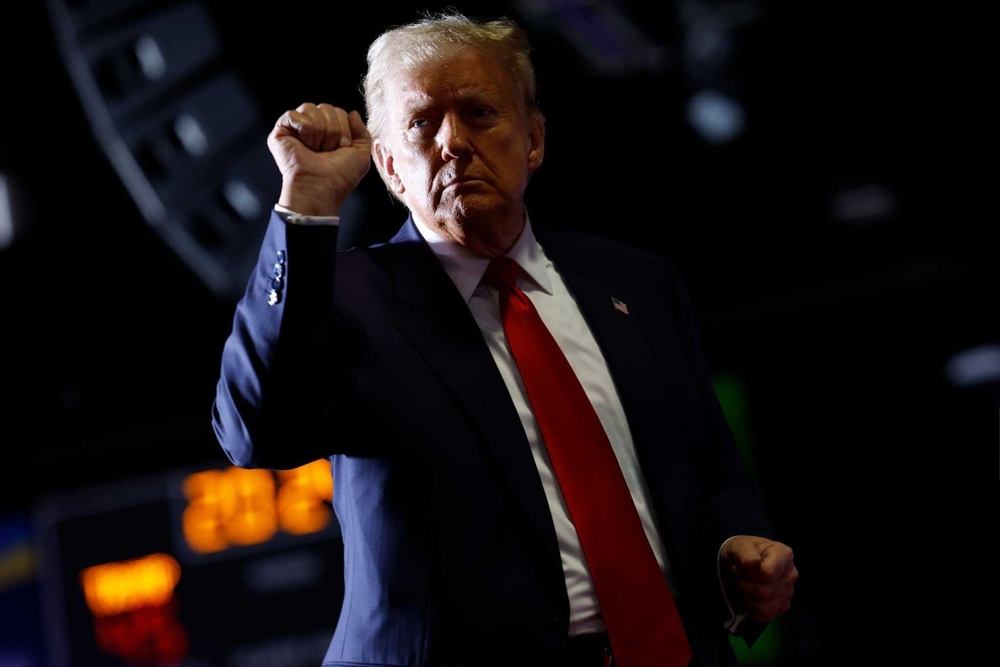President Trump’s America-first tariff strategy rattles global markets as China refuses to bend to U.S. pressure, revealing the high-stakes economic chess match that impacts American workers and businesses. The President’s firm stance against unfair trade practices has sent shockwaves through international commerce, with major corporations already warning of profit impacts while China remains defiant.
Trump Demands Fair Trade with Tariff Ultimatum
President Trump has signaled his intention to reimpose tariffs within weeks if fair trade deals aren’t reached with China and other nations. This decisive move demonstrates the administration’s unwavering commitment to protecting American industries and workers from foreign exploitation.
#uncertainty
3-weeks after US President Trump effectively declared a #trade war with the whole world, new economic forecasts and surveys will point to the initial fallout, chart @markets https://t.co/8BVto7VUw9 pic.twitter.com/S2b47OZGhQ— ACEMAXX ANALYTICS (@acemaxx) April 20, 2025
China’s Ministry of Commerce has bluntly confirmed there are currently no economic trade negotiations underway with the United States. Their dismissive response to prospects of progress highlights the challenging path ahead for American negotiators seeking better terms for U.S. manufacturers and farmers.
Economic Uncertainty Grows as Markets React
The S&P 500 has shown muted movement amid a volatile trading week directly influenced by President Trump’s firm stance on trade negotiations. Major American companies, including PepsiCo and Merck, have already issued warnings that tariffs and economic uncertainty could significantly impact their future profits.
"Trump warns the US economy could slow unless the Fed cuts interest rates, criticizing Jerome Powell's approach. Economists expect his tariffs to have long-term effects on growth, despite inflation cooling. US equities dipped as Powell's future remains uncertain. #Economy" pic.twitter.com/6JjQHvUC1m
— Amit (@AmitxUpdates) April 22, 2025
American Airlines took the dramatic step of withdrawing its earnings forecast entirely due to the current economic uncertainty. This protective measure underscores the significance of stable trade relations to American businesses as they plan for the future and secure American jobs.
America First Policy Tackles Global Trade Imbalance
Treasury Secretary Scott Bessent has firmly stated that any de-escalation of trade tensions would need to be mutual, rejecting calls for unilateral tariff reductions by the United States. This stance reinforces the Trump administration’s commitment to negotiating from a position of strength rather than surrendering American economic interests.
“I don’t think either side believes that the current tariff levels are sustainable.” – Scott Bessent.
The trade imbalance between the United States and China has reached extreme levels with punitive tariffs on both sides. American tariffs on Chinese goods stand at approximately 145% while China’s retaliatory tariffs on U.S. imports have reached 125%, creating a trade environment that demands resolution through strength and determination.
President Trump plans to protect American automakers by maintaining the crucial 25% tariff on foreign-made vehicles while exempting certain car parts from China. This strategic approach aims to preserve American manufacturing jobs while ensuring competitiveness in the global marketplace through targeted trade policy rather than blanket restrictions.
The Trump administration continues to prioritize American energy independence, with officials like Tommy Joyce openly criticizing harmful “net-zero” policies that threaten our energy security. These America-first energy initiatives complement the administration’s broader economic strategy of strengthening domestic production across all strategic sectors.
Sources:
https://www.nytimes.com/2025/04/24/business/stock-market-trump-tariffs.html

